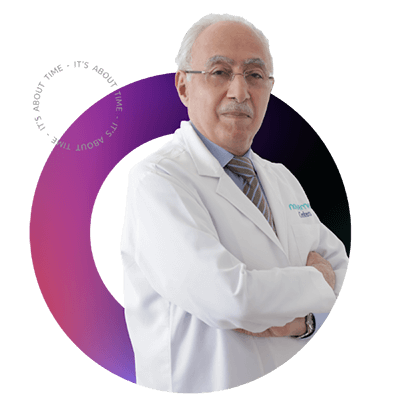Overview
Dysphagia is a painful condition that causes difficulty swallowing liquids, food, or saliva. It can be caused by various factors and happen to anyone. However, persistent dysphagia may be a cause for concern as it can be a sign of an underlying problem or lead to a more serious medical problem. You should see a doctor if you believe you are suffering from dysphagia, as they will be able to treat your condition and prevent it from worsening.
What are the types of dysphagia?
Dysphagia can be classified into three categories, depending on where the swallowing problem is located:
Oral dysphagia:
When the problem occurs in the mouth – usually caused by tongue weakness.
Pharyngeal dysphagia:
When the problem occurs in the throat – usually caused by a neurological condition affecting the nerves, such as Parkinson’s disease.
Esophageal dysphagia:
When the problem occurs in the esophagus – usually caused by a blockage or inflammation and requires surgery.
What are the symptoms of dysphagia?
Common symptoms of dysphagia include:
- Food that is stuck in the throat or chest
- Persistent drooling or swallowing discomfort
- Regurgitation (when food comes back up)
- Recurrent heartburn or pneumonia
- Backing up of food or stomach acid into the throat
- Coughing, gagging, or choking when swallowing
What are the causes of dysphagia?
Dysphagia can be caused by various factors, including:
- Aging: elderly people are more vulnerable to this condition because of the body’s natural wear and tear over time.
- Achalasia: when the lower esophageal muscle does not relax sufficiently to allow food to reach the stomach.
- Radiation: individuals who have had radiation therapy may have difficulty swallowing.
- Stroke: a stroke can cause damage to brain cells that control swallowing.
- Esophageal conditions (stricture or tumors): can lead to the narrowing of the esophagus and make swallowing difficult. As a result, large pieces of food get stuck in the esophagus.
- Eosinophilic esophagitis: a condition in which the number of eosinophils in the esophagus is abnormally high, causing vomiting and swallowing difficulties.
- Gastroesophageal reflux syndrome (GERD): when stomach acid backs up into the esophagus, damages esophageal tissues, and constricts the lower esophagus.
- Nervous system disorders, such as multiple sclerosis and Parkinson’s disease.
How is dysphagia diagnosed?
During your consultation, our ENT doctor will ask about your symptoms and perform a physical examination. They may administer several tests to pinpoint the source of the problem, such as a CT scan or an X-ray. They may also request other tests, such as:
- Barium X-ray swallow test: This test involves swallowing a liquid containing barium, which is visible in the X-ray, allowing the doctor to examine the muscular activity in your esophagus.
- Esophageal manometry: This exam involves inserting a tiny tube into your esophagus that allows the doctor to measure the muscle contractions and pressure changes of your esophagus as you swallow.
- Endoscopy: This procedure involves examining your esophagus using an endoscope (a small, illuminated tube) that is passed down your throat while you try to swallow.
How is dysphagia treated?
Dysphagia treatment is determined by the cause of your condition.
- Swallowing exercises: Our doctor can show you exercises that will help you swallow food properly and have the right posture while you swallow.
- Diet: Our doctor may recommend some foods and beverages that can help you avoid difficulty swallowing and manage your symptoms.
- Medications: The doctor may prescribe oral medication that can help lower stomach acid or treat Parkinson-related symptoms.
- Dilation of the esophagus. The doctor may stretch and expand your esophagus by inserting an endoscope into it and inflating a connected balloon treat esophageal narrowing and motility issues.
- A feeding tube: Our doctor may recommend this treatment if dysphagia is preventing you from eating or drinking so that you can get nutrients without having to swallow them.
- Laparoscopic Heller myotomy: This involves cutting the muscle at the lower end of the esophagus when it fails to open and release food into the stomach.
- Botulinum toxin: This toxin is used to relax the muscles in the esophagus that works by paralyzing tight muscles and lowering constriction.
- Surgery. You may need surgery to treat throat narrowing or blockages if you have achalasia, GERD, or esophageal cancer.
To reduce your chances of having swallowing problems in the future, you should chew properly and slowly eat smaller portions of food. You should also avoid eating shortly before sleeping to prevent heartburn.
Schedule your appointment at Novomed today
If you are experiencing swallowing problems, make an appointment with one of our expert ENT doctors in Dubai to learn more about your condition and treatment options.
Book your consultation today by calling toll-free 8006686 or clicking the live chat icon at the bottom of the screen.


























